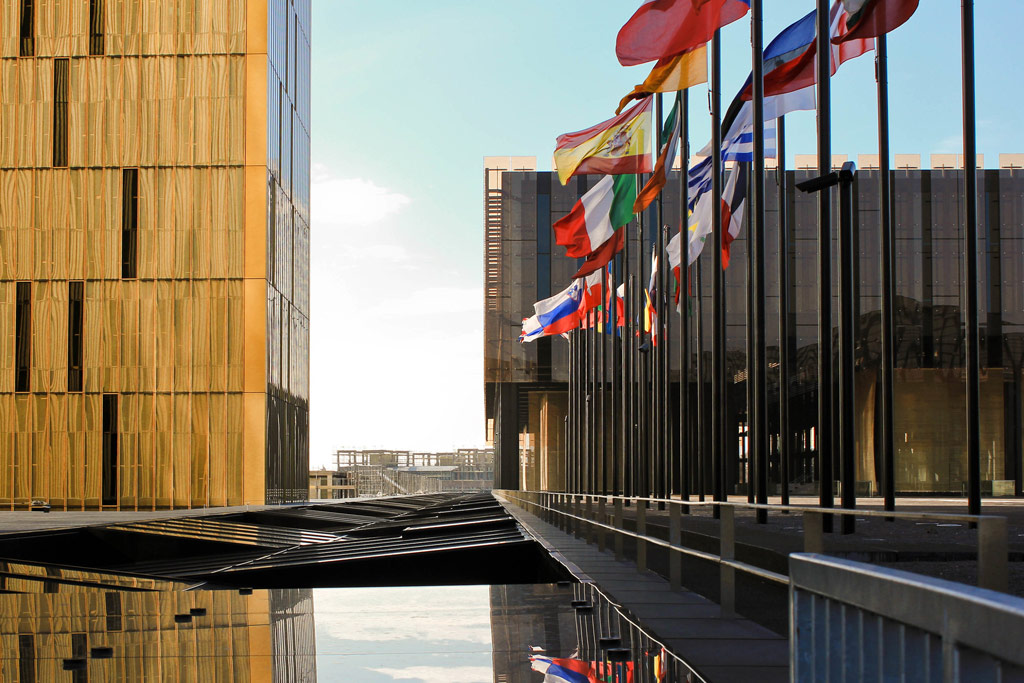
How to respond to the rule of law challenges faced as a result of access to power of Right-wing populist parties in some EU states is an outstanding question. Populism is a contested concept. Is it an ideology, a political movement, or a political style? From the standpoint of human rights, what strikes as particularly troublesome is the populist rejection of hard-won rights, such as the rights of immigrants and refugees, LGBTQI+ communities, and women’s rights. Equally striking are the populist strategy used to implement those views: the successive undermining of judicial independence. The strategy of taking control over the courts deprives those whose rights are denied in the name of populist goals from a place to turn for redress. However, the strategy of taking political control over courts is not instrumental to abolishing certain rights alone. It is the display of a systemic political ambition to destroy national systems of checks and balance that protect entire populations from the arbitrary use of political power for whatever political goals, including the elimination of democratic forms of government.
The fact that the rule of law, human rights, and the rights of persons belonging to minorities are legal common values recognized in Article 2 of the EU Treaty is of no avail. Neither do the populist governments seem persuaded by the fact that the right to effective judicial protection established in the EU Charter of Fundamental Rights (article 47) and the European Convention on Human Rights (article 6) is a fundamental right. As these legal texts state, this right is an entitlement to a ‘fair and public hearing within a reasonable time by an independent and impartial tribunal…’. That a court must be independent from political control to protect everyone’s rights, including of minorities, is not a small matter. The more political actors are capable of influencing and directing the work of judges, the more likely it is that the judges will fail to protect minorities from political goals to abolishing the rights of their members.
How to counter the tendencies of current Right-wing populist government within the EU? The EU framework have disciplinary proceedings in place for cases involving a ‘clear risk of a serious breach by a Member State of the values referred to in Article 2’ (article 7 TEU), among them the rule of law, human rights and rights of persons belonging to minorities. In 2017, in an unprecedented move, the Commission took the bold move of calling on the Council to initiate such proceedings against Poland. Then, in 2018, the European Parliament followed suit by also calling on the Council to initiate such proceedings against Hungary out of concerns about judicial independence, freedom of expression, corruption, rights of minorities, and the situation of migrants and refugees in that country . So far, however, these efforts have gotten stuck in the Council. Even if it in principle can discipline a member, indeed, even suspend its voting rights, with the support of 4/5 of its members, it has not been able to act.
The final version of the regulation, initially proposed by the Commission, to create a regime of conditionality for the protection of the Union budget was watered down in December 2020 when the Hungarian and the Polish governments threatened to block the approval of the EU budget and the Recovery Fund if such requirements were imposed as a condition for receiving EU funds (see here for a critical comment). EU leaders thus decided to suspend the implementation of this regulation, which came into force on 1 January 2021. As for now, it is too soon to tell how the Commission guidelines on how to manage rule of law challenges in this context will develop. The legal action launched by Poland and Hungary against the regulation on 11 March 2021, pose additional challenges to a speedy implementation. Meanwhile, the Commission relies on other tools. The newly created European law mechanism enables a dialogue between the Commission, the Council and the European Parliament as well as EU states, national parliaments, civil society and other stakeholders, in the development of annual rule of law reports. These reports look at the justice system, the anti-corruption framework, media pluralism, etc. within the member states (2020 Rule of law report). The mechanism is a welcome addition to the tools for responding to the challenges we face. Nevertheless, it is a soft measure and as such, lacks teeth.
To date, a more prominent strategy has been to rely on the powers of the judges of European supranational courts. The Commission has initiated several infringement proceedings against Poland before the EU Court of Justice which have led to rulings condemning Poland for failing to meet its obligations to respect the rule of law (see .e.g. C-619/18 and C-506/20). Not only the Commission but also national judges have turned to supranational courts with complaints about how the governments in their countries are violating their rights. In 2016, the European Court of Human Rights in Strasbourg condemned the Hungarian government for violating rights of Mr. András Baka, President of the Hungarian Supreme Court. The Strasbourg Court found it unacceptable that the judge had been removed from the bench just because he had criticized the constitutional reform that enabled his removal in the first place. The court thought it was particularly grave that the judge in this case had nowhere to turn for redress and that he had been punished for having expressed himself publicly in his professional capacity on matters of general interest. As the court pointed out, his removal could also have a chilling effect on national judges, dissuading them from participating in future public debates on legislative reforms affecting the independence of national courts. National judges have also come to use the possibility to request preliminary rulings concerning judicial independence by the EU Court of Justice in Luxembourg. Indeed, Polish judges have asked a hoop of such questions to this court during the autumn of 2020 (see e.g. C-671/20, C-615/20, C-506/20, and C-509/20). In a recent case, the Luxembourg court stated that current appointment of Polish Supreme Court judges may be contrary to EU law concerning judicial independence. However, it is for the Polish court to rule on the issue Luxembourg court in accordance with its ruling (C-824/19).
In light of these developments, it is fair to conclude that, at this point in time, the most important public defenders of the rule of law, including judicial independence, within the EU are the judges of European supranational courts. These judges have turned into primary guardians of judicial independence of national courts and individual judges that suffer the effects of populism through removals or appointment denials. The outstanding question is if these judges can go it alone. To change the situation and restore the rule of law in the most affected states, it seems essential that the Council of the EU finally steps up and does its part.


